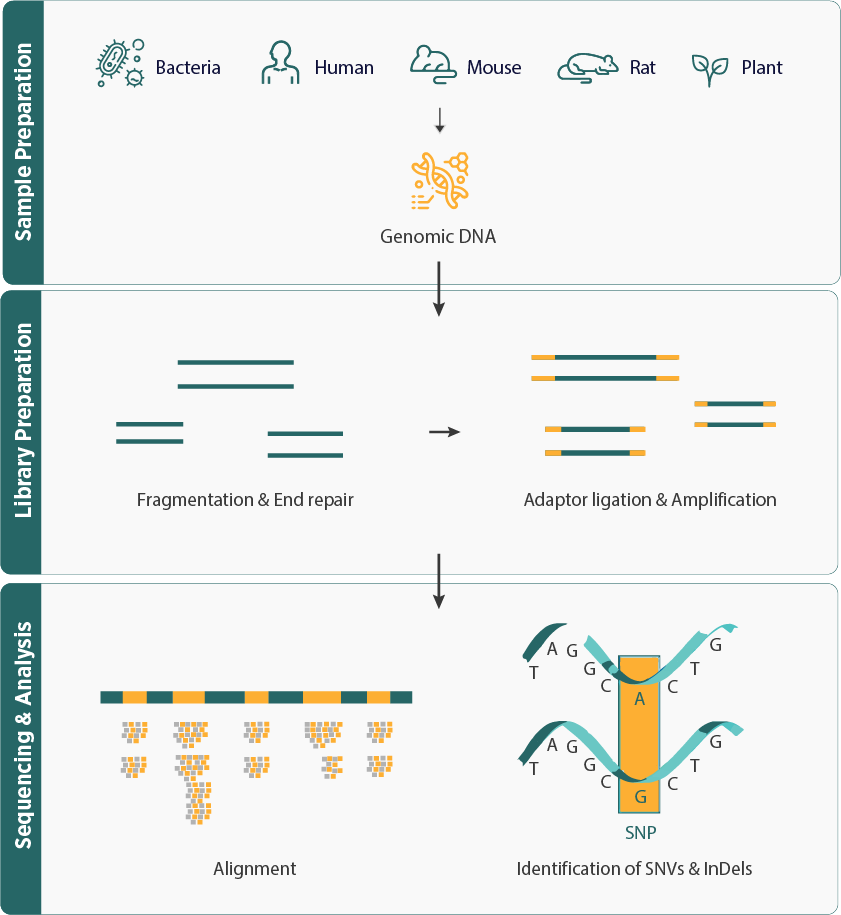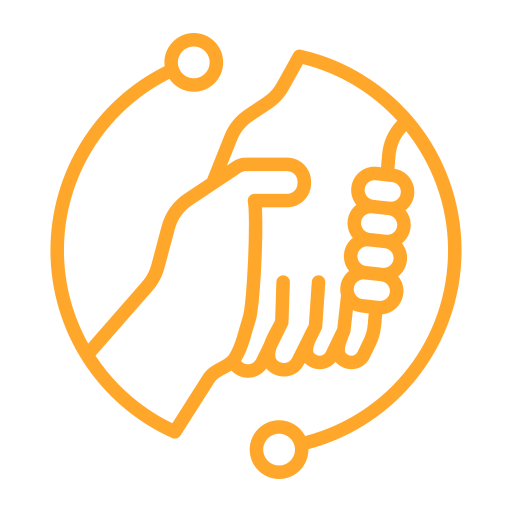Introduction and Workflow
- Whole Genome Resequencing involves sequencing an organism's entire genome where reference genome is already available. Unlike de novo sequencing, which builds a genome from scratch, resequencing focuses on identifying variations and differences compared to a previously known reference genome.
- The workflow involves DNA isolation, fragmentation, and sequencing to generate millions of short reads.
- These reads undergo alignment to a reference genome, followed by the analysis of genetic variations using advanced bioinformatics tools.
- It enables detailed analysis of genetic variations across diverse species like humans, plants, and bacteria.
Advantage
- Provides a detailed examination of an organism's entire genome, revealing all genetic variations compared to a reference genome.
- Enables accurate identification of single nucleotide polymorphisms (SNPs), insertions, deletions, and structural variants, crucial for understanding genetic diversity and disease mechanisms.
- Facilitates the discovery of genetic markers associated with diseases, guiding personalized treatment approaches.
- Supports diverse studies including evolutionary biology, agricultural genetics, and microbial genomics, enhancing insights into genetic adaptations and relationships across species.

Bioinformatics Pipeline

Applications of Whole Genome ReSequencing
- Genetic Variation Discovery- Identifies and characterizes genetic variations, including single nucleotide polymorphisms (SNPs), insertions, deletions, and structural variants, across different individuals or populations, aiding in the study of genetic diversity and evolution.
- Disease Research- Helps in pinpointing genetic mutations and variants associated with genetic disorders, complex diseases, and rare conditions, enhancing our understanding of disease mechanisms and enabling the development of targeted therapies.
- Personalized Medicine- Facilitates the tailoring of medical treatments based on an individual's genetic profile, allowing for more precise and effective interventions and drug responses.
- Population Genetics- Assists in studying the genetic makeup of populations to understand evolutionary processes, migration patterns, and adaptation to environmental changes, providing insights into the genetic basis of traits and diseases.
- Agricultural Genomics- Identifies genetic markers linked to desirable traits and maps quantitative trait loci (QTL) to enhance selective breeding and improve characteristics such as yield, disease resistance, and stress tolerance. It also supports genome-wide association studies (GWAS) to connect genetic variants with specific traits or diseases.
Service Specifications
Sample Requirement
Genomic DNA, Cultivated cells, Blood, tissues, and other samples.
Please refer to sample submission guidelines or Contact Us!
Sequencing Platform
Illumina NovaSeq 6000/ NovaSeq X

Deliverables
- The original sequencing data
- Experimental results
- Bioinformatics and Data Analysis Report
- Details of Whole Genome ReSequencing (customizable)
